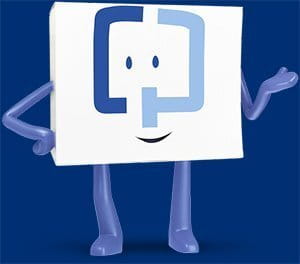Real Cologuard®
story: Tracy
Colorectal cancer survivor, screened with Cologuard®
“I was taking care of everyone but myself. It’s strange how that happens.”
As a nurse, wife and mom of two, Tracy knows what a joy it is to take care of others. And in the year following a stage I colon cancer diagnosis, how the idea of balancing it all is just an illusion.
“I was taking care of everyone but myself. It’s strange how that happens.”
It wasn’t a singular thing that made taking time for herself so tough. It was all the little things that creep up in the day-to-day, quietly compounding over the years. Before she knew it, she had been eligible to screen for colon cancer for a few years and hadn’t gotten it done. During an annual physical when her provider listed her appropriate options, she stopped him at Cologuard. She was at average risk, and thought it sounded simple enough.
The box was sent to her home, she collected her sample and sent it back.
“I didn’t think anything of it,” she said.
She didn’t think too much about her positive result, either – apart from making an appointment for a colonoscopy to complete screening.
The wait after her colonoscopy to get the results? Different story.
“Two polyps were removed and tested,” she explained. “Of course, as a nurse, I was waiting for my colonoscopy findings to be ready and was researching everything in the meantime.”
It wasn’t long after that she received the news from her gastroenterologist: the colonoscopy revealed stage I colon cancer. A month after receiving her positive Cologuard result and only about a week after her diagnosis, she went back in for surgery.
“It all happened so fast that I didn’t really process it. When you don’t think anything is wrong with you and suddenly you’re faced with cancer?”
It was jarring. Tracy’s recovery from surgery was every bit as physical as it was emotional. And it took time for Tracy to come to terms with herself before sharing with others – especially her two boys.
“There’s a perception that moms don’t get sick, moms hold it all together, moms take care of everybody. It was easier to tuck my feelings away at the time.”
A year removed from surgery, she is untangling those emotions: shock from her diagnosis, sadness recalling how she felt while she recovered, and feeling so fortunate to have gotten screened, received treatment, and now feel like herself once again.
All of those feelings are wrapped up in one that she knows well: an overwhelming desire to help others. She’s making a difference every time she shares her experience with family, friends, even coworkers.
“Just get it done,” she tells everyone. “It can be one less thing to worry about, and you’ll be happy you did.”
She certainly is.
This story reflects one individual’s experience. Not every person will have the same treatment, experience, outcome, or result. Cologuard is prescribed by your health care provider. Talk to your health care provider about available screening options and whether Cologuard may be right for you. There are potential risks associated with the Cologuard test and it may not be appropriate for all patients. For more information about the risks, talk to your health care provider or visit Cologuard.com/risk-information for more information.
Cologuard is intended to screen adults 45 years of age and older who are at average risk for colorectal cancer by detecting certain DNA markers and blood in the stool. Do not use if you have had adenomas, have inflammatory bowel disease and certain hereditary syndromes, or a personal or family history of colorectal cancer. Cologuard is not a replacement for colonoscopy in high risk patients. Cologuard performance in adults ages 45-49 is estimated based on a large clinical study of patients 50 and older. Cologuard performance in repeat testing has not been evaluated.
The Cologuard test result should be interpreted with caution. A positive test result does not confirm the presence of cancer. Patients with a positive test result should be referred for colonoscopy. A negative test result does not confirm the absence of cancer. Patients with a negative test result should discuss with their doctor when they need to be tested again. False positives and false negative results can occur. In a clinical study, 13% of people without cancer received a positive result (false positive) and 8% of people with cancer received a negative result (false negative). Rx only.

